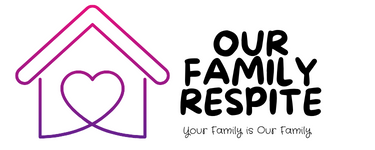
Caring for a child with Down syndrome is deeply rewarding, but it comes with challenges that can stretch even the most capable families. Knowing when to use overnight respite care for children with Down syndrome can make all the difference. It’s not about stepping away—it’s about making space to regroup, so you can come back stronger and more present.
This type of care gives your child tailored support in a stable, nurturing environment. It also gives you breathing room you may not realise you need. Families across the Central Coast, North Sydney, and Newcastle are finding that using respite early leads to better outcomes for everyone.
What challenges do families face without specialised respite?
When respite care isn’t part of your routine, daily stress can quietly pile up. Here are the most common challenges families face without specialised support:
- Exhaustion becomes your new normal: Constant care without breaks leads to emotional and physical fatigue, often before you even realise it’s happening.
- Family dynamics start to suffer: Strained relationships with partners or siblings are a sign that the household is running on empty.
- Children miss opportunities for independence: Without time away from home, your child may lose out on valuable experiences that build confidence and adaptability.
- Planning ahead feels impossible: When each day is about getting through, long-term goals get lost in the chaos.
- You have no time to reset: Even short breaks can reset your perspective—without them, burnout creeps in quietly and stays for good.
Skipping respite might seem noble, but it often causes more harm than help.
Why is timing crucial for Down syndrome respite care?
Waiting until you’re burnt out isn’t the best time to seek support. Here are the reasons why timing really matters:
- Early intervention prevents crisis care: Introducing respite before exhaustion hits lets you stay in control, not just in survival mode.
- Children adjust more easily when it’s not a reaction: If your child views respite as routine rather than rescue, they’re more likely to feel secure and relaxed.
- It supports smoother transitions later: When care routines are familiar early on, moving into more formal care arrangements becomes less disruptive down the line.
- It normalises support as part of life: Respite becomes just another rhythm in your week, not a disruption, but a helpful addition to your care toolkit.
- It builds capacity for growth: With regular breaks, you’re more present, more patient, and better able to guide your child’s development.
The earlier you start, the more flexible and supported your family can become.
How can inconsistent care affect children with Down syndrome?
Routine is everything. Children with Down syndrome often thrive on predictability, and inconsistent care can really throw a spanner in the works. Here are the consequences families report:
- Routine disruption increases emotional distress: When daily rhythms change frequently, children may become anxious, resistant, or withdrawn.
- Trust in new carers can be harder to build: A rotating door of unfamiliar faces makes it difficult for your child to form lasting, secure attachments.
- Delays in skill-building: Inconsistency affects how often children are encouraged to practise daily living tasks or social behaviours.
- Unclear expectations lead to confusion: If different carers use different approaches, your child is left unsure of what’s expected, which can fuel behavioural challenges.
- The emotional toll adds up: Children pick up on stress at home, too. Without structure, they often carry emotional weight they can’t express.
A reliable night care for kids with Down syndrome helps build security, trust, and lasting progress.
What are the signs that it’s time to consider respite?
Families often wait until things reach a boiling point. But the signs show up well before that. Here are the key indicators that now might be the right time:
- You’re constantly drained: If you’re tired even after sleep or find yourself snapping over small things, you’ve likely crossed into burnout territory.
- Your child’s needs are becoming more complex: Whether it’s behaviour, routine, or medical support, growing needs may be outpacing your current setup.
- Daily tasks are slipping: When things like bills, errands, or social plans keep falling through, your mental load may be maxed out.
- There’s tension in your home: Care-related stress doesn’t stay in its lane—it affects everyone.
- You’ve noticed your child showing signs of increased need: If emotional regulation or sleep is becoming a challenge, it may point to some of the signs your child needs extra support, indicating that respite care could offer valuable structure.
Respite isn’t a luxury—it’s a care strategy. Recognising the need early is a strength, not a shortcoming.
How does overnight respite care for children support families?
When done right, overnight respite care for children with Down syndrome supports more than the child. It strengthens the whole household. Here are the ways it provides support:

- Stability in a personal setting: Children benefit from staying in a carer’s home environment, where familiar routines and surroundings can offer a sense of calm and consistency.
- Individualised routines support familiar habits: Tailored plans keep things consistent, reducing anxiety and creating a sense of normalcy.
- Social growth in a safe space: Spending time in new environments allows for practising communication, flexibility, and independence.
- Parents regain perspective: A night—or a weekend—away creates space to reflect and recharge, which often leads to better decision-making and calmer interactions.
- Families experience better balance: Respite supports a return to shared responsibilities, less resentment, and more cooperation.
Can planned respite improve wellbeing for everyone involved?
Absolutely. Scheduled breaks aren’t just good for stress—they’re a way to build resilience and sustainability. Here are the positive outcomes:
- Reduces long-term burnout risk: Building in care gaps helps you stay emotionally steady and avoid the crash-and-recover cycle.
- Encourages adaptive behaviour in your child: Being in new but predictable settings helps children develop flexibility and trust in multiple caregivers.
- Strengthens sibling and partner relationships: When you’re less overwhelmed, there’s more room for empathy, conversation, and shared attention.
- Creates emotional bandwidth: A well-rested parent is a more responsive one, and that benefits the whole household.
- Clarifies financial expectations: You can explore a breakdown of respite care costs in Australia to align funding with realistic care plans.
Comparison Table: Types of Respite Options
Type | Location | Duration | Ideal for |
Personalised Respite Home | Support worker’s home | Overnight to 2 weeks | Children needing consistency |
In-Home Services | Family residence | Not offered here | N/A |
Final thoughts on using Down syndrome respite care at the right time
Waiting until things fall apart isn’t a care plan—it’s damage control. Adding overnight respite to your care structure helps you preserve energy, gives your child space to grow. It also makes caregiving more sustainable.
It may be worth speaking with Our Family Respite professionals to explore what personalised support could look like for your family.

